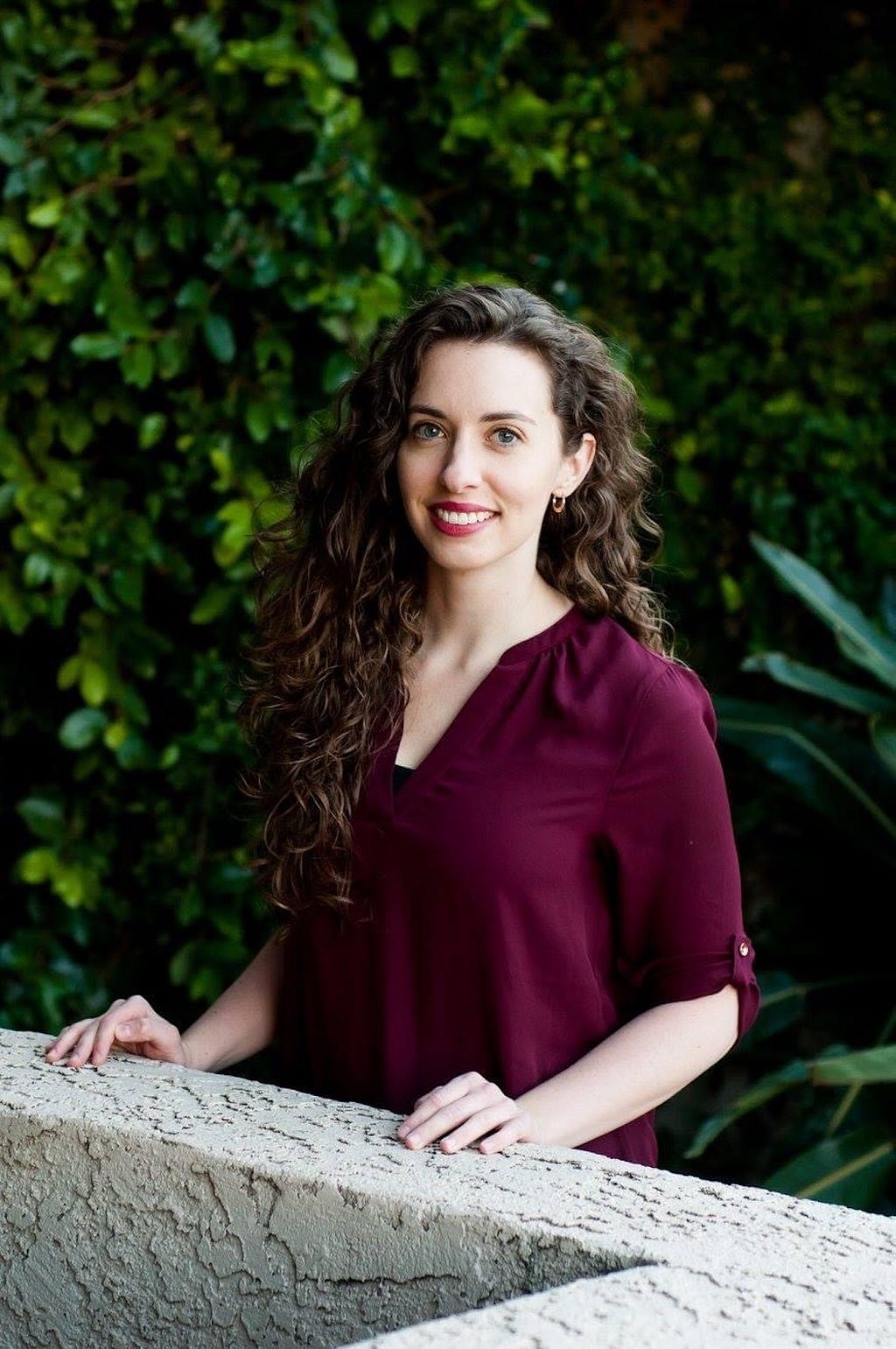
Younger generations as future leaders.
This one is a bit cliché, but the younger generation is more educated, more aware, and more ready to do things differently than they’ve been done before. Seeing the conversations they’re having and the issues that matter most to them make me so hopeful in our future leaders. Young people these days are discussing issues that people of my generation are just barely learning to comprehend. They also have such an important imagination that socioeconomic and climate issues can and should be solved with the right amount of education and action. The future can be bleak, but I think this young generation will be the one to make it much brighter.
Reading the news can be so demoralizing: climate change, war, fires, epidemics, rogue AI, mental health, authoritarianism, extreme partisanship. But humans need hope. In order for us to create a positive future, we need to be able to have hope that there can be a positive future. What is the “Case for Optimism” over the next decades? What can we look forward to and hope for to help us strive for a more positive future?
In this series, we aim to explore and highlight the positive aspects, potential breakthroughs, and reasons for optimism that lie ahead in the coming decade and beyond. We are talking to authors, researchers, entrepreneurs, scientists, futurists, and other experts who can shed light on the exciting advancements, innovations, and opportunities that await us. As a part of this series, we had the pleasure of interviewing Katelyn Thacker.
Katelyn Thacker is the Chief of Staff at BanQu (https://www.banqu.co/)- a traceability solution that helps brands and manufacturers ensure their supply chains are equitable, resilient, and compliant. Katelyn’s career has spanned nonprofits, corporations, consulting, and start-ups, with extensive experience in corporate sustainability, human rights programming, and social impact.
Thank you so much for joining us in this interview series! Before we dive into the main focus of our interview, our readers would love to “get to know you” a bit better. Can you tell us a bit about your childhood backstory?
I grew up in Arizona. Given the heat outside, I was often inclined to spend my time on music and books. I used to tell people I dreamed of becoming a doctor but had no real inclination towards it. Those who knew me best thought I would end up being an author.
What or who inspired you to pursue your career? We’d love to hear the story.
I started my career in the nonprofit world. I wasn’t completely certain what I wanted to focus on, but after my master’s program, I got a job with Winrock International and became very interested and passionate about human rights programming. As I was working on the projects, I was impressed by how much good impact could occur once businesses got involved in social issues. So, I switched over to a career in corporate responsibility…and then when BanQu came along, I was won over by the for-profit, for-purpose model — creating sustainable and ethical supply chains through traceability and visibility that benefits both brands and the first mile — farmers, waste collectors, and workers.
None of us can achieve success without some help along the way. Was there a particular person who you feel gave you the most help or encouragement to be who you are today? Can you share a story about that?
I think it was a whole village of people. My parents, first, always encouraged me to go after what I wanted to do and to do it well. My mentors at my first position post-master’s degree were always willing to give me more responsibilities and let me learn my way through them. And most recently our co-founders and my colleagues at BanQu have always been the best cheerleaders.
What are some of the most interesting or exciting projects you are working on now? How do you think that might help people?
As Chief of Staff my role has varied over the years, but it all comes down to driving company growth strategy. Most recently, I’ve been over launching our global events and tradeshows and overseeing revenue, sales, and marketing strategy and alignment. I think what BanQu does for companies and supply chain contributors is so important and unique, that these recent projects are really helping spread the word while connecting with like-minded, optimistic individuals.
You are a successful leader. Which three character traits do you think were most instrumental to your success? Can you please share a story or example for each?
- Empathy — It may sound cheesy, but I think empathy is one of the greatest traits of a person, especially in a leadership position. As a leader of any kind, you’ll work with a variety of people from a variety of backgrounds who all have their own challenges, goals, thoughts, and feelings. Being able to connect to people and really understand them is one of the greatest ways to support — and lead — them.
- Openness to Feedback — Along the same vein as empathy, is an openness to feedback. Not only feedback on our own performances and journey but also feedback from others on how a project or strategy should go. I think leaders often make the mistake of thinking they need to be the smartest person in the room, or the only big decision-maker. But the best leaders I’ve worked with — and the one I strive to be — are the ones that harness everyone’s ideas and feedback to create a solid strategy that works well for everyone.
- Making Time for Hobbies — Hear me out! But I think a healthy love of work-life balance is crucial for a healthy leader and team. If a leader can show by example a healthy work-life balance, then they’ll be a better leader. In turn, I think this gives other team members permission to maintain that same healthy balance. Sure, there will be times when you must grind or work more than usual to finish something. But avoiding burnout is so important, and life isn’t all work.
Ok, thank you for all of that. Let’s now shift to the main focus of our interview about the case for optimism. Let’s begin with a basic definition so that all of us are on the same page. When we refer to being optimistic about the future, what exactly do we mean?
Being optimistic about the future doesn’t mean you have no fears about the road ahead. There are a lot of horrible things in our world today. But I think optimism is a healthy hope that with the right tools and work we can make the world a better place for all bit by bit.
Why is it important to have an optimistic outlook about the future?
Having an optimistic outlook is crucial because it helps us maintain hope, motivation, and resilience in the face of adversity. Optimism drives innovation and inspires action, encouraging individuals and communities to tackle societal problems and create positive change. It empowers us to believe that our collective efforts can shape a brighter and more sustainable future.
What are some reasons people might feel pessimistic about the future, and how do you suggest we address these concerns?
I think a healthy dose of pessimism is realistic, but we can’t let it stop us from trying and improving. People may feel pessimistic about the state of global socioeconomic divides, racial inequities, and climate harm. Awareness and honesty are the first step to change. I don’t think it’s realistic to never feel pessimistic about the above, but rather to channel that pessimism into action. Every bit of action helps!

Fantastic. Here is the main question of our discussion. Can you please share with our readers your “5 Reasons To Be Optimistic About The Next Ten and Twenty Years?”
1. Awareness & discussion.
I think it’s easy to say “people aren’t thinking or talking about XYZ enough,” because it’s usually true. There are hardships right in our backyards and issues in our hometowns we’re not aware of or discuss. Same goes for world news and focuses — it sometimes feels like it’s just about the next big headline when people are still starving or without shelter and climate harm continues. At the same time, we’re seeing more awareness and discussion around socioeconomic and climate issues than ever before. Whether I’m online, at a conference, or chatting with friends. I’m blown away by the breadth of awareness and discussion over how we care for each other and our planet, and how we leave this world better than when we found it.
2. Regulatory requirements.
In addition to an uptick in awareness and discussion, there has also been an increase in regulatory requirements for companies to reduce their harm to people and planet. Particularly in the EU, we’re seeing an unprecedented number of due diligence requirements on companies to ensure that their supply chains and operations uphold human rights and account for climate harm and carbon reduction efforts. Many of these regulations require third-party audits and robust data and reporting that are reviewed and publicly available. We often put a lot of onus of climate harm reduction on individuals: waste less, drive less, etc. While individual efforts certainly help, there’s no disputing that the majority of climate harm comes from corporations. So the fact that we’re starting to heavily regulate corporations is a great start.
3. Exposure & accountability.
Along with regulatory requirements, we’re seeing a lot more exposure of unethical or harmful companies and accountability. Whether through exposes, or regulatory fines, we’re quickly seeing who and who hasn’t been paying attention to the climate effects of their operations. I think a lot of companies and people at said companies wish to do go, and don’t want to harm people and planet, but without exposure and accountability many companies will just continue with the status quo. I think the fact that unfounded sustainability claims and faulty carbon account practices are being brought to light is a huge step in the right direction.
4. Technological advancements.
Thanks to the rise of companies need to measure, track, report, and prove on their sustainability efforts, we’re also seeing some amazing applications and solutions pop up to help companies do so. From blockchain-based supply chain traceability, to real-time, verifiable carbon credits, to satellite imagery confirmation of reforestation efforts, we’re seeing such a suite of options for brands to drive better, more sustainable business.
5. Younger generations as future leaders.
This one is a bit cliché, but the younger generation is more educated, more aware, and more ready to do things differently than they’ve been done before. Seeing the conversations they’re having and the issues that matter most to them make me so hopeful in our future leaders. Young people these days are discussing issues that people of my generation are just barely learning to comprehend. They also have such an important imagination that socioeconomic and climate issues can and should be solved with the right amount of education and action. The future can be bleak, but I think this young generation will be the one to make it much brighter.
In what specific areas do you see technology having the most positive impact over the next 10 to 20 years?
Technology, if used wisely, will have a significant positive impact on sustainable agriculture, sourcing, climate accounting and reporting, and poverty alleviation. I’ve seen some positive impacts already with BanQu and its partners through supply chain traceability and visibility, and how that helps transform how we source ingredients and materials and ensure fair pay and treatment throughout supply chains.
While technology holds immense potential, it can also present challenges. How can we ensure that the progress we make in technology contributes to a more optimistic future and doesn’t exacerbate societal problems?
I think the answer to this question comes down to accessibility. Meaning, too often technological advances are created in this bubble that can feel so forward-thinking and amazing but at the end of the day still only benefits the privileged. A good rule of thumb in technological advances is to ask yourself the question: how does this help or harm the lowest in our socioeconomic conditions?
How do you maintain your optimism during challenging times?
Great question! I let myself feel whatever I’m feeling — down, pessimistic, unsure — and then decide how to take action or help. Sometimes it can be as simple as researching ways to donate or contribute financially, and other times it’s about getting involved in my community and giving back. I think the most important thing is to not wallow in pessimism for too long, and to take action to help, even in a small way.
Ok, we are nearly done. You are a person of great influence. If you could inspire a movement that would bring the most amount of good for the greatest number of people, what would that be? You never know what your idea can trigger.
It would be to support local businesses! I think supporting local is one of the most sustainable, easy ways to give back to your community and ensure that your money is supporting individuals rather than giant corporations. Obviously, it’s hard to 100% purchase locally, but anytime you can swap out a local business for a giant conglomerate, it is a huge win.
We are very blessed that some of the biggest names in Business, VC funding, Sports, and Entertainment read this column. Is there a person in the world, or in the US, whom you would love to have a private breakfast or lunch with, and why? He or she might just see this, especially if we both tag them 😊
I’m a huge fan of Brett Matthews’ journalism work in the textile and apparel industry. He’s so ahead of his time and industry when it comes to drilling into what sustainability actually means, and which brands are achieving it vs. greenwashing.
How can our readers further follow your work online?
Follow my profile and BanQu’s on LinkedIn! Always happy to connect.
Thank you for these really excellent insights, and we greatly appreciate the time you spent with this. We wish you continued success and good health!
Thanks — you too!
Katelyn Thacker of BanQu On The Case For Optimism About The Next Ten & Twenty Years was originally published in Authority Magazine on Medium, where people are continuing the conversation by highlighting and responding to this story.
